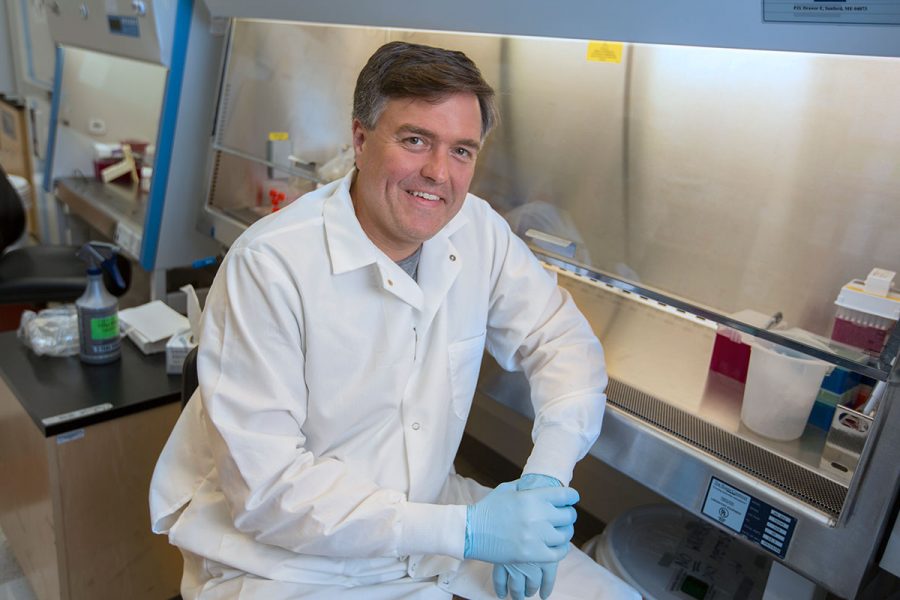
A Florida State University scientist has received $1.14 million from the National Institutes of Health to study a little understood area of human epigenetics.
Associate Professor of Biological Sciences Brian Chadwick will examine what’s called the inactive X chromosome — essentially a silent chromosome in women where the biological functions are largely unknown.
“The inactive X chromosome is a fascinating female-specific phenomenon,” Chadwick said. “It has been known for more than 60 years that this chromosome adopts an unusual structure in the female nucleus, but the means by which this is achieved and how this alternate three-dimensional arrangement contributes to its silent state remains unknown.”
In nearly all female mammals, there are two X chromosomes. However, one of the chromosomes is almost entirely inactivated, meaning that most genes on the chromosome aren’t necessarily dictating a biological function. Since silencing this chromosome is essential for female development, scientists have been trying to understand how this is achieved and maintained.
Chadwick has long been fascinated with the role this inactive X chromosome plays. His recent work showed that there are repeat DNA sequences on the inactive X chromosome that perform an essential role in the three-dimensional structure of the chromosome.
“We know that the inactive X chromosome is important because its absence results in Turner syndrome and failure for it to form is lethal, but we know very little about how the silencing of the chromosome is impacted by its folding into a three-dimensional structure,” Chadwick said. “We are entering an exciting new era of functional genomics whereby we can engineer changes to the genome so that we can begin to answer precisely these sorts of questions.”
Women born with Turner syndrome typically are unable to grow to full height and suffer from infertility as well as potentially more serious problems such as skeletal abnormalities and heart defects.
Chadwick has been a faculty member at Florida State University since 2009. He received his doctoral degree in molecular genetics from the University College London in the United Kingdom.
In addition to his teaching and research responsibilities at FSU, he is an academic editor for the journal PLoS One and on the editorial advisory board of Chromosome Research.
The grant, which will be spread out over four years, will help fund five graduate student researchers in Chadwick’s lab.




